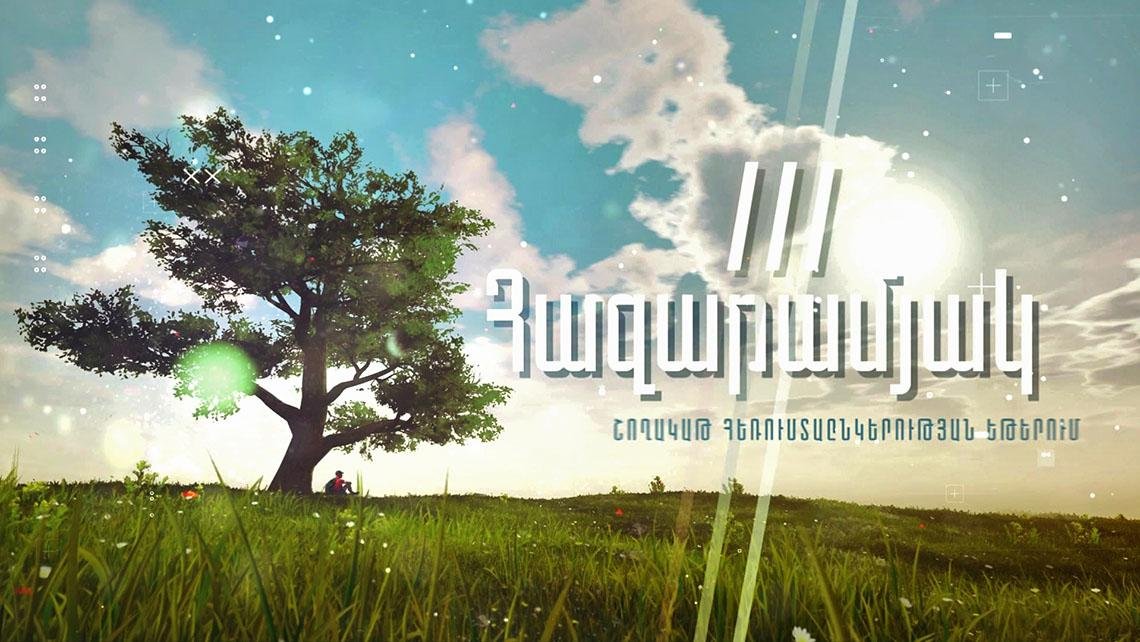
 |
Armenian Women and "State Feminism" in Silent CinemaCinema entered Armenian reality during a difficult and hard period: genocide, the fall of the First Republic, imposed Soviet ideology with a complete rejection of the past. Who was the Armenian woman in Soviet-Armenian silent cinema? Anna Sargsyan spoke with Ruzanna Bagratunyan, author of the documentary collection “Talking Women of Silent Cinema.” |
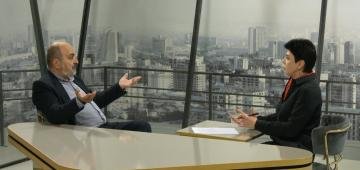 |
How to celebrate victory when we still feel defeatedAfter the defeat in 2020 and, especially, after the Armenian exodus from Artsakh in 2023, we do not know how to celebrate the holiday of the liberation of Shushi. There is no state support to society in this matter, which would help in any way to regulate conflicting emotions. There is no public demand that would force the state to develop a policy and attitude. Nevertheless, May 9 is both in the state holiday calendar and in the collective memory of Armenians. Anna Sargsyan talked about the transformation of the Victory Day with ethnographer Mkhitar Gabrielyan. |
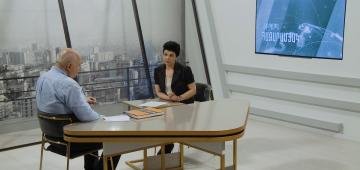 |
The Armenian Genocide Issue and the Karabakh MovementWith what slogans and posters did the Armenian people climb the Tsitsernakaberd Memorial Complex in 1988-1990? How was the struggle for the recognition of the Armenian Genocide expressed during the years of the Karabakh movement and then the demand for independence? With what parallels and in what spirit was the struggle for the collective rights of the Armenian people conducted? Anna Sargsyan hosted Doctor of Historical Sciences Harutyun Marutyan. |
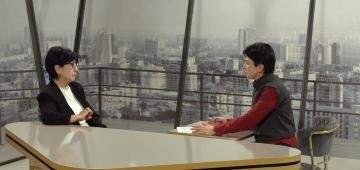 |
The demands of the people of Artsakh and their reasonsThe resettlement of Artsakh residents forcibly displaced by Azerbaijan in Armenia is going through painful processes. Are the reasons for this social, cultural, or political? Anna Sargsyan spoke with Laura Baghdasaryan, director of the Region Research Center. |
 |
The power of law and the world of the strongWho can be the guarantor of the rights of the Armenians of Artsakh today, how is it possible to realize their right to collective return? Anna Sargsyan spoke with Avetik Harutyunyan, a lawyer and translator of V. Nersesyants' fundamental work "Philosophy of Law." |
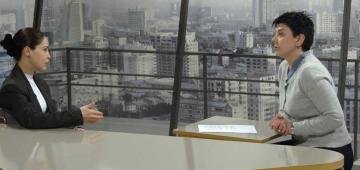 |
"Western Azerbaijan" - a state programIn the 5th grade history textbook of the Azerbaijani general education school, which came into the hands of Azerbaijanist Tatev Hayrapetyan, it is written that the Armenian SSR was created in the western part of the historical Azerbaijani lands. According to the authors of the textbook, Azerbaijanis who were forcibly displaced from their ancestral lands later formed the West Azerbaijan community, which appears before international organizations, so-called, for the protection of their historical heritage and the rights of the displaced population in West Azerbaijan. Anna Sargsyan talked about the state occupation programs of Azerbaijan with the candidate of historical sciences, Azerbaijanist Tatev Hayrapetyan. |
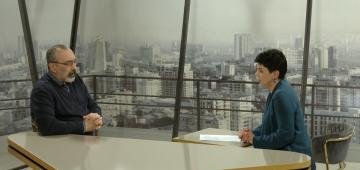 |
The new phase of the struggle for self-determination of Artsakh ArmeniansHow to talk about the right of self-determination of the Armenians of Artsakh today? To talk or not? To what extent are Armenia-Turkey relations interconnected with the Artsakh issue? Anna Sargsyan discussed the topic with Turkologist, former Minister of Foreign Affairs of the Republic of Artsakh Karen Mirzoyan. |
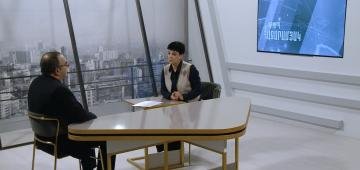 |
Artsakh's cultural heritage unprotectedIn 2023, as a result of the military occupation of the entire territory of NKR(A), more than ten thousand monuments of historical, cultural and world civilizational value created by Armenians over millennia are at risk of destruction or distortion of identity. Anna Sargsyan spoke with Lernik Hovhannisyan, former Minister of Culture of the NKR, Chairman of the Diocesan Council of the Artsakh Diocese, about the issues of protecting them from Azerbaijani aggression. |
 |
The civilizational crisis in the modern world and hybrid warsHow far can the political bar of "Man is the supreme value" be lowered? Does today's world have such a description? What is the civilizational profile of Armenia? What political identity does our state have? Anna Sargsyan discussed the topic with political analyst Hakob Badalyan. |
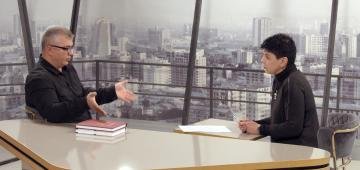 |
Azerbaijan continues the war in the regionAzerbaijanis have recently been circulating the thesis that Bartholomew, one of the founding apostles of the Armenian Church, preached and was killed in Baku. It turns out that Azerbaijan is also pursuing a policy of appropriation towards Georgia and Iran. Anna Sargsyan spoke about this manifestation of hybrid warfare with Gor Margaryan, a researcher at the Geghard Foundation and a candidate of historical sciences. |
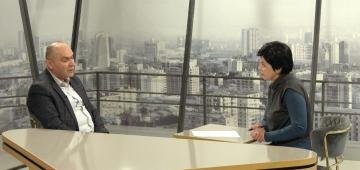 |
The technology of blaming the victimThe Armenian people, particularly the Armenians of Artsakh, have been fighting for the right to live freely and independently in the struggle for the right to self-determination for generations. That amount of sacrifice is considered excessive even today. What is the phenomenon of blaming the victim: a complication or a tactic? Anna Sargsyan discussed the topic with Vitya Yaramishyan, a candidate of psychological sciences, until 2023. Vice-rector of Artsakh State University. |
 |
Not to renounce the right of Armenians to self-determinationFebruary is the month of the 1988 Karabakh movement in the collective memory of Armenians. It was essentially a struggle for the right to self-determination. Did the fall of the Republic of Artsakh put an end to that struggle? Anna Sargsyan discussed the topic with candidate of legal sciences, attorney Taron Simonyan. |